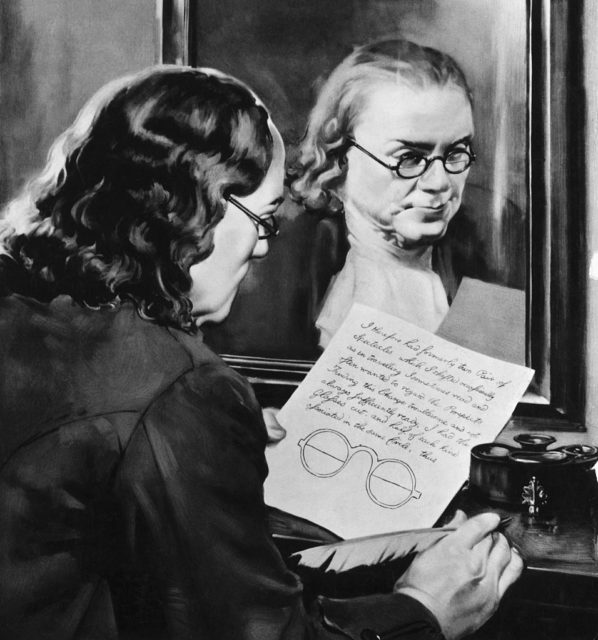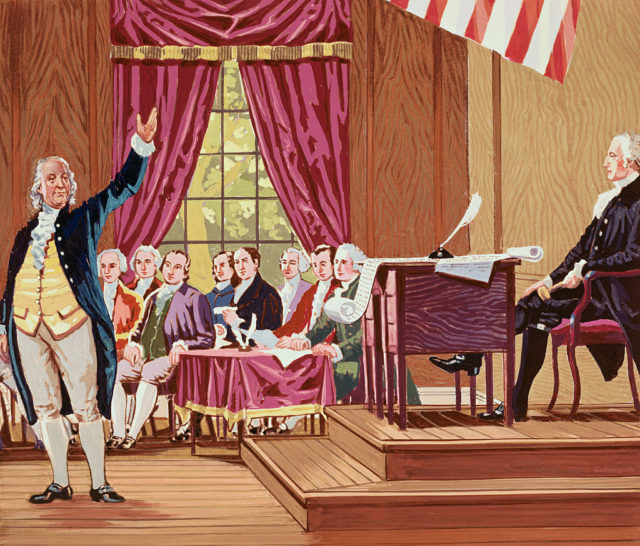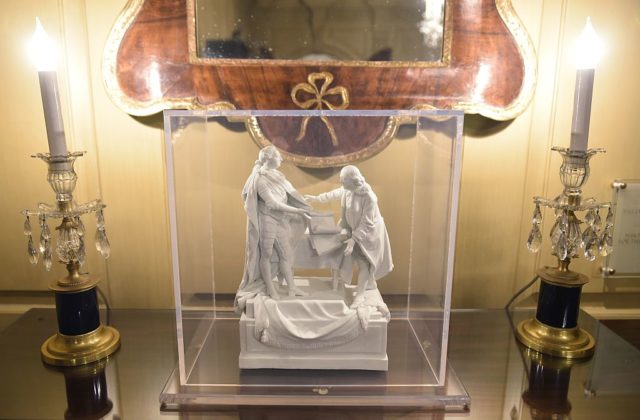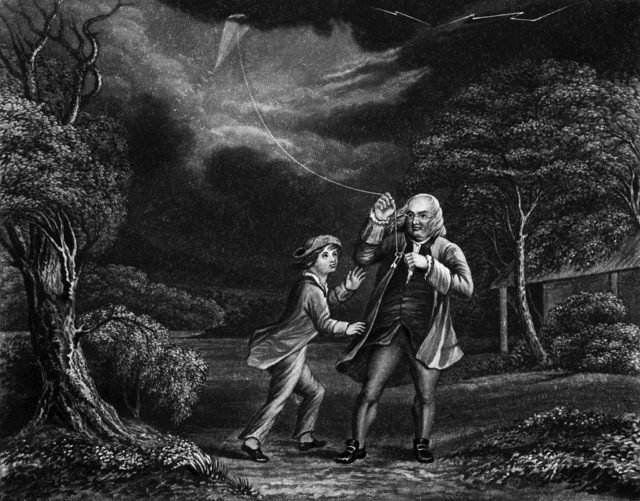If there’s one accusation you couldn’t level at Benjamin Franklin, it’s that he was an underachiever.
The 18th-century Founding Father of the United States was a known polymath – not only was the 6th President of Pennsylvania a politician, he was also an author, scientist, and diplomat, among other roles.
However, that did not mean he stopped short of aiming low at times, especially in the service of good humor. This is ably demonstrated in a bit of fun he had at the expense of the Royal Academy of Brussels.

He penned an essay with the extraordinary title “Fart Proudly” (c. 1781, with the less in-your-face alternative of “A Letter to a Royal Academy about farting”). Put simply, it sought to shine a light on the cheekiest of topics.
In fact, back then shining a light probably would have involved striking a match. Not the wisest of moves as far as this subject is concerned, yet Franklin was seized with a reactionary fervor.
At the time he was the US Ambassador to France, where he was inspired by a Royal Academy shout-out for serious scientific papers. For Franklin, this was the perfect opportunity to “pooh pooh” the establishment of boffins.
He wanted to challenge accepted thinking head-on. As far as he was concerned, the Academy was just a giant behind.
In 2013 Mental Floss wrote, “ He thought scientists were falling out of touch with reality. Year after year, they churned out pompous papers that didn’t make life better for the common man. Science should be practical, Franklin thought. Science should help everyday problems.”

And what could be a more everyday problem than the natural, if unwanted, release of gas?
Franklin loftily described the process, whereby “in digesting our common Food, there is created or produced in the Bowels of human Creatures, a great Quantity of Wind. That the permitting this Air to escape and mix with the Atmosphere, is usually offensive to the Company, from the fetid Smell that accompanies it.”
So far, so stinky. Though Franklin’s solution was to take the noxious whiff out of the equation.
He urged the introduction of a whiff-dispelling wonder drug “to be mix’d with our common Food, or Sauces, that shall render the natural Discharges of Wind from our Bodies, not only inoffensive, but agreeable as Perfumes.”

In 2015, Vox highlighted the appropriateness of the Royal Academy’s location when considering the issue of flatulence. It wrote “Research has also found that foods which contain hydrogen sulfide — like… Brussels sprouts… disproportionately contribute to farts smelling bad.”
Franklin wasn’t alone when it came to debating post-digested matters. Fellow scribe Jonathan Swift of Gulliver’s Travels fame adopted the false name of Don Fartinhando Puff-Indorst for the pomposity-puncturing pamphlet “The Benefit of Farting Explain’d.”
So what was the Academy’s reaction to this irreverent communication? It never landed on their doormat. Franklin decided not to follow through on his intentions, choosing instead to treat the essay as a private joke between him and philosopher pal Richard Price.

While it didn’t contribute anything to the world of science, ‘Farting Proudly’ did great things for the pun. For example, Franklin ended the letter with a conclusion highlighting modern scientific discovery as “scarcely worth a FART-HING.”
Perhaps unsurprisingly, this particular piece of work was treated as the black sheep of Franklin’s output. But as time went by it was decided the world needed to know about Franklin’s observations on breaking wind.
Read another story from us: Benjamin Franklin was Very Popular with French Women
When finally released, it caused the stink Franklin hoped it would. The humble fart was never smelled in the same way again. And more importantly, the wit of Benjamin Franklin could be appreciated by an audience more attuned to his bold lampooning of this bodily function.
